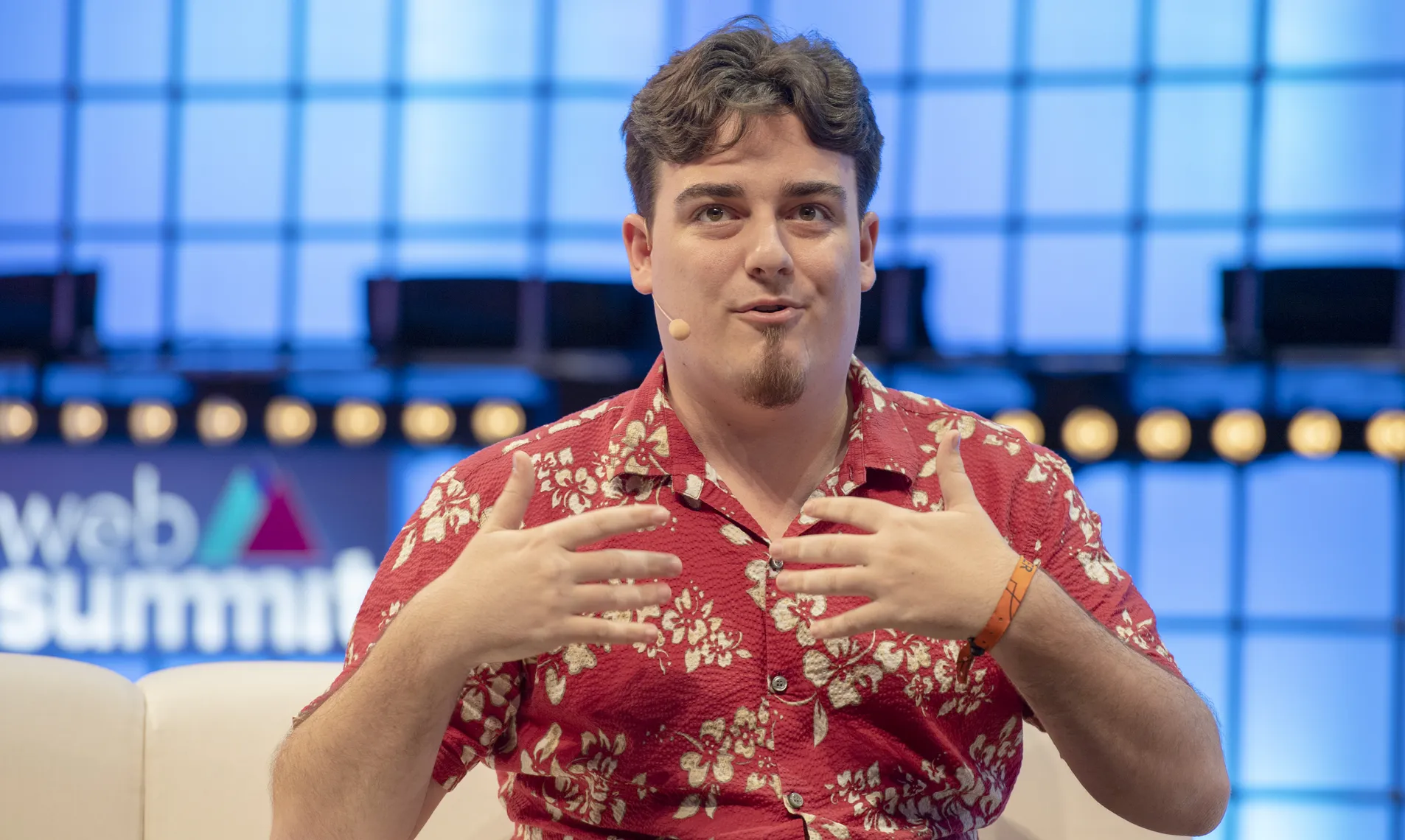Who is Palmer Luckey? Founder of Oculus VR and defence technology entrepreneur
Palmer Luckey is best known as the founder of Oculus VR and now leads Anduril Industries, a defence technology company.
His career reflects a shift from consumer-focused innovation to advanced autonomous systems, providing insight into how technology continues to influence both virtual and real-world applications.
American entrepreneur Palmer Luckey co-founded the virtual reality headset company Oculus VR in 2012 at the age of 20 and sold it two years later for about US $2 billion. He has since shifted focus to the defence-technology sector through his start-up Anduril Industries.
What is his background, and what has happened since? Let’s take a closer look.
Early career and Oculus VR
Palmer Luckey is an American entrepreneur best known as the co-founder of Oculus VR, the virtual reality company sold to Meta Platforms (then Facebook) in March 2014 in a deal reportedly worth around US $2 billion.
According to TechCrunch, Luckey launched Oculus through a Kickstarter campaign, and the sale took place 601 days after the initial crowdfunding launch. During his time at Facebook, he helped launch the Oculus Rift gaming headset and remained with the company until April 2017.
Transition to defence technology
After leaving Oculus and Facebook, Luckey co-founded Anduril Industries in 2017. The company develops autonomous systems, software platforms and hardware for military and security applications.
He also founded an online forum, ModRetro, focused on gaming, software, computers and electronics.
2024–2025 developments
Palmer Luckey’s net worth was estimated at $3.5 billion as of November 2025 (Forbes, 7 November 2025).
In 2025, Anduril reached several milestones. The company took over development of the US Army’s Integrated Visual Augmentation System (IVAS) programme, marking a major step in its defence-tech expansion.
In September 2025, personal aviation company Jetson delivered its first Jetson ONE unit to Luckey, highlighting his growing interest in advanced mobility technology beyond defence applications.
These developments show how Luckey’s focus has evolved – from consumer virtual reality to large-scale defence and mobility systems.
What is Anduril Industries?
Anduril Industries is a defence-technology company based in Costa Mesa, California. It describes itself as tackling modern military challenges through software-defined, hardware-enabled autonomous systems.
The company was founded by Palmer Luckey, Brian Schimpf, Trae Stephens, Matt Grimm and Joseph Chen. Schimpf serves as CEO, Stephens as executive chairman and Grimm as COO. Several founders previously worked at Palantir Technologies.
Anduril’s flagship offerings include Lattice OS, its autonomous command-and-control platform, and a range of hardware systems, such as autonomous drones, underwater vehicles and counter-UAS (uncrewed aerial system) solutions. The company holds contracts across US and allied defence organisations.
Milestones and controversies
In December 2022, Anduril completed a Series E funding round valuing the company at US $8.48 billion. The round raised US $1.48 billion and was led by Valor Equity Partners, with participation from Andreessen Horowitz, Lux Capital and General Catalyst.
In 2025, Anduril entered a new collaboration with Meta Platforms to develop a wearable system for the US Army, codenamed EagleEye. This marked a notable reconnection between Luckey and Meta after earlier disagreements.
However, the company has also faced scrutiny for its role in border-surveillance technology and for broader debates around the ethical use of autonomous systems in civilian and military contexts.
Context for traders and observers
While this information does not constitute investment or trading advice, Luckey’s career demonstrates how a technology founder can transition from consumer electronics to advanced defence systems.
For readers interested in the relationship between technology, defence and private capital, Anduril provides a case study in innovation, scale and regulatory complexity.
More broadly, the defence technology sector is increasingly shaped by start-ups and private equity investment rather than traditional contractors – with Luckey and Anduril playing a prominent role in this shift.
Key takeaways
- Luckey founded Oculus VR in 2012 and sold it to Meta Platforms in 2014.
- He established Anduril Industries in 2017, entering the defence-technology sector.
- Recent milestones include taking over the IVAS programme and renewing collaboration with Meta on military wearable systems.
- His interests now extend to advanced mobility, as seen with his 2025 personal-aviation project.
- Anduril’s growth highlights the ethical, regulatory and strategic complexities common to defence-technology firms.
Create an account Open a demo account
FAQ
Why did Palmer Luckey create Oculus?
How much was Oculus worth as a company?
Meta Platforms (then Facebook) bought Oculus VR in March 2014 in a cash-and-stock deal valued at around US $2 billion.
The acquisition positioned Meta among the first major technology firms to make a significant investment in virtual and mixed-reality hardware.
Is Palmer Luckey still a billionaire?
Palmer Luckey’s net worth was estimated at around US $1.3 billion in July 2022, according to Forbes. As of 2025, industry reports suggest his wealth has grown alongside Anduril Industries’ expansion and new defence contracts, though no verified figure has been publicly disclosed.